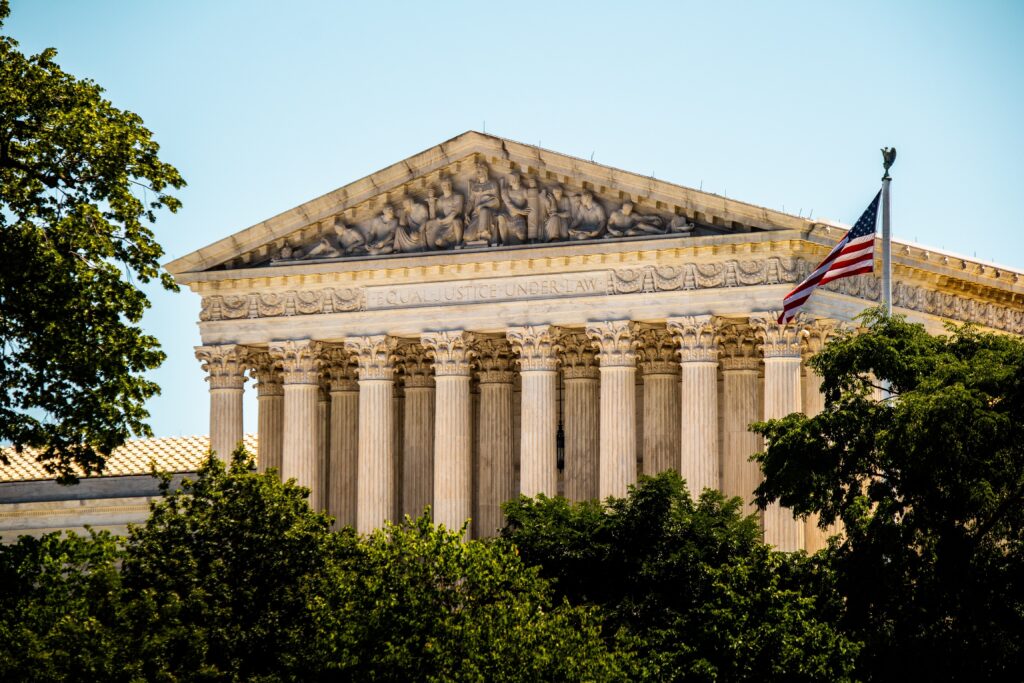United States Supreme Court’s Monumental Ruling on Arbitration Procedures: Coinbase v. Bielski Explained

On 23 June 2023, in a groundbreaking decision, the United States Supreme Court provided clarifications on the procedures subsequent to a district court’s refusal to compel arbitration, specifically referenced in Coinbase v. Bielski, No. 22-105.
The core question pertained to the provisions under 9 U.S.C. §16(a), which provides that when a federal district court denies a motion to compel arbitration, the losing party has a statutory right to file an interlocutory appeal.
The Supreme Court emphasized that while such an appeal is underway, the District Court must necessarily pause both its pre-trial and trial proceedings.
Case Overview
Coinbase, a leading cryptocurrency exchange, found itself embroiled in a lawsuit when Bielski initiated a class-action suit, claiming the company’s negligence in restoring funds fraudulently withdrawn from user accounts.
In response, Coinbase invoked an arbitration clause present in its user agreement, a move which was dismissed by the District Court.
Whilst Coinbase pursued an interlocutory appeal, its plea to halt the District Court proceedings was also denied – a decision which was upheld by the Ninth Circuit.
Verdict of the Supreme Court
Drawing on the established precedent from Griggs v. Provident Consumer Discount Co., 459 U.S. 5 (1982), the Supreme Court underscored that an appeal, whether interlocutory or not, invariably limits the jurisdiction of the District Court over elements of the case being appeal.
This translates to the fact that, if the eligibility of a case for arbitration is under appeal, the entirety of the case is effectively “on hold.”
The majority of appeals courts in the United States which have been faced with this issue (Eleventh, Fourth, Third, Tenth, D.C., Seventh, and Fifth), have reached the same conclusion.
Highlighting the pragmatism of such an approach, the Supreme Court elucidated that allowing the District Court to advance proceedings amidst an ongoing arbitrability appeal would undermine the inherent advantages of arbitration (i.e., cost-effectiveness and minimal discovery). Furthermore, the Supreme Court explained that, absent a stay of proceedings, parties might also be forced to settle in order to avoid the very court proceedings that they have initially contracted to avoid by implementing an arbitration mechanism.
Underscoring legislative intent, the Supreme Court emphasized the standard modus operandi of Congress in its explicit endorsement or opposition of a stay during an interlocutory appeal. When Congress wants to authorize an interlocutory appeal but does not want to automatically stay the District Court proceedings pending that appeal, Congress will explicitly say so. On the other hand, when Congress wants to authorize an interlocutory appeal and automatically stay the District Court proceedings during that appeal, Congress typically does not say anything regarding the stay.
Accordingly, the Supreme Court rejected all of Bielski’s arguments in favor of there not being an automatic stay:
Frivolous Appeals
Bielski argued that an automatic stay would encourage frivolous appeals.
In response, the Supreme Court dismissed the argument citing no empirical evidence to substantiate such a claim, and asserted the existence of procedural checks for such instances (i.e., District Court certifying that an appeal is frivolous).
Legislative Implication
Second, Bielski argued that Section 3 of the Federal Arbitration Act and §1292(d)(4) of Title 28 specifically provide for stays, implying that the lack of a stay in the language in Section 16(a) regarding interlocutory appeals shows that none was intended.
The Supreme Court noted that these provisions were not directly analogous and served different purposes in their respective contexts.
Therefore, the cited absence in Section 16(a) concerning interlocutory appeals does not imply that a stay was unintended.
Arbitration Bias
In the third argument, Bielski contended that enforcing an automatic stay would create a special, arbitration-favoring procedural rule.
The Supreme Court debunked this by stating that it was not creating a new law, but rather, following the existing precedent established by Griggs.
Contrary to Bielski’s argument, an automatic stay does not favor arbitration, but rather, adheres to established legal doctrine.
Discretionary Stay Factors
Fourth, Bielski posited that there was no need for a categorical rule on automatic stays because existing discretionary stay factors could adequately safeguard the interests of the parties.
The Supreme Court countered this by stating that evidence demonstrated the necessity for an automatic stay, regardless of how often discretionary factors might be applied.
Moses H. Cone Reference
Lastly, Bielski invoked the Supreme Court’s earlier statement in Moses H. Cone Memorial Hospital v. Mercury Constr. Corp., arguing that questions of arbitrability were “severable from the merits of the underlying disputes.”
The Supreme Court, however, clarified that the crux of the Coinbase case was whether the District Court’s jurisdiction is affected during an appeal focusing on arbitrability.
The Supreme Court affirmed that the District Court’s authority was indeed “involved in the appeal,” and nothing in the Moses H. Cone decision contradicted this view.
—
Conclusively, the District Court’s authority was rendered void following Coinbase’s appeal, leading to the reversal of the Ninth Circuit’s judgment.
Through a rigorous dismantling of each contention raised by Bielski, the Supreme Court fortified its stance that an automatic stay is both legally consistent and pragmatically necessary in the context of an interlocutory appeal concerning a denied motion to compel arbitration.